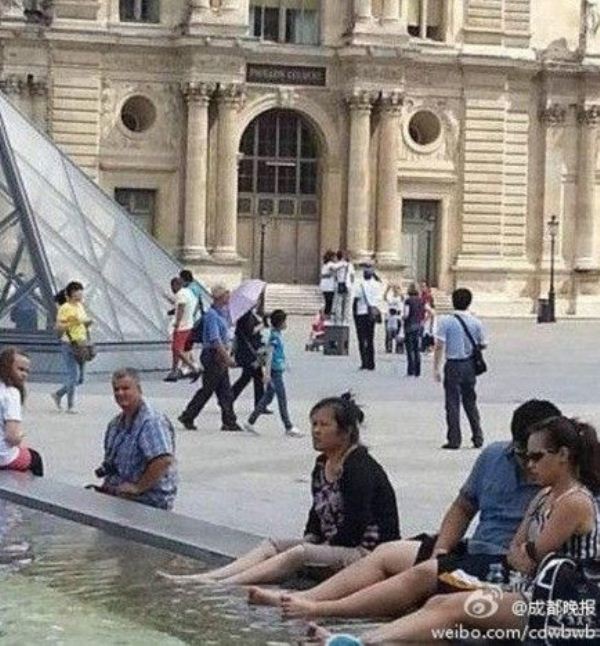
How would you feel if tourists came into your country and defaced a three thousand year old monument? What if they also defecated on your buses and pools, and also refused to line up in queues?
In Luxor, Egypt, a Chinese tourist carved a personal message onto a 3,500 year old temple: “Ding Jinhao was here.” This infuriated locals, prompting them to track down the 15-year-old vandal from Nanjing.
There are signs outside of The Louvre in Paris that read in simplified Mandarin, “no urinating or defecating in public.” The sign is only in one language, and had no French or English translations.
In Taiwan, Chinese tourists used their fingers to hollow and dig away at the walls of Anping Fort in Tainan. Despite the staff’s attempts to stop this, the tourists continue to wreck the wall, as well as spit on the grounds of the grade-one national heritage site.
In recent times, Chinese people have become unpopular in Hong Kong and Taiwan for behaving outside the boundaries of appropriate social conduct.
The fact that China has become quite a rich country has created new tensions. Newly rich individuals – especially from developing countries – have not been educated on the basic etiquette of other countries.
On a recent trip overseas, I witnessed a few mainlanders behaving in some of the most uncivilized ways. There was an angry female passenger (literally) screaming at an airport worker because her baggage was overweight. When lining up to get through customs, a Chinese tourist tried to push her way to the beginning of the line while muttering racist slurs about an Indian couple in front of me.
Some people may not realize this, but when you are traveling in a foreign country, you, your actions, and your behavior represent your country as a whole. Every time people see a tourist from a certain country behaving inappropriately, the locals’ views of that country suffer.
Mainland Intrusion
October 31, 2013
0
More to Discover


![A myriad of impressive trophies and awards. [ANNABELLE HSU/THE BLUE & GOLD]](https://blueandgoldonline.org/wp-content/uploads/2025/09/Awards2-1200x512.jpeg)
![Students' calendars say goodbye to exam week. [ANNABELLE HSU/THE BLUE & GOLD]](https://blueandgoldonline.org/wp-content/uploads/2025/09/Exam-week-1200x740.jpg)
![A collection of college flags. [PHOTO COURTESY OF AMBER HU ('27)]](https://blueandgoldonline.org/wp-content/uploads/2025/05/IMG_5029-1200x577.jpeg)

![An SAT word cloud. [PHOTO COURTESY OF WORDCLOUDS]](https://blueandgoldonline.org/wp-content/uploads/2025/05/SAT.jpeg)
![Collage of banned books, including “The Handmaid’s Tale” by Margaret Atwood. [MINSUN KIM/ THE BLUE & GOLD]](https://blueandgoldonline.org/wp-content/uploads/2025/04/IMG_4274-1200x681.jpeg)